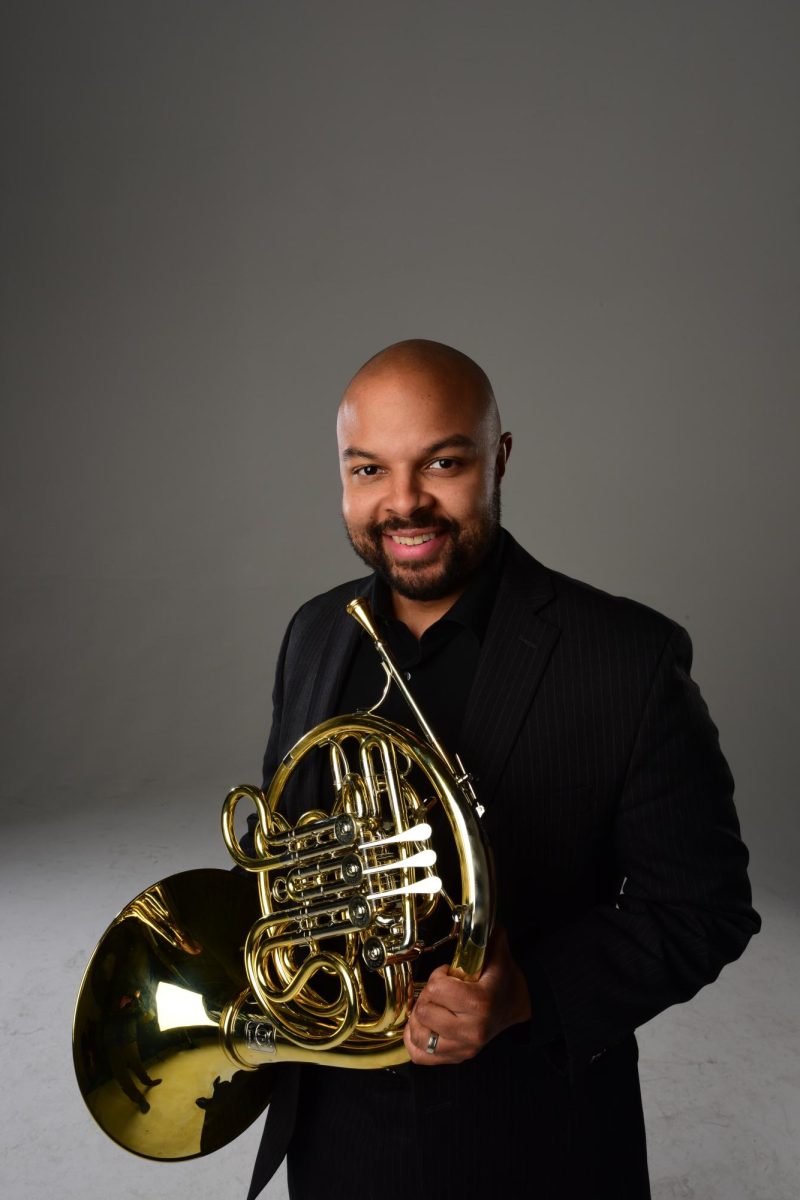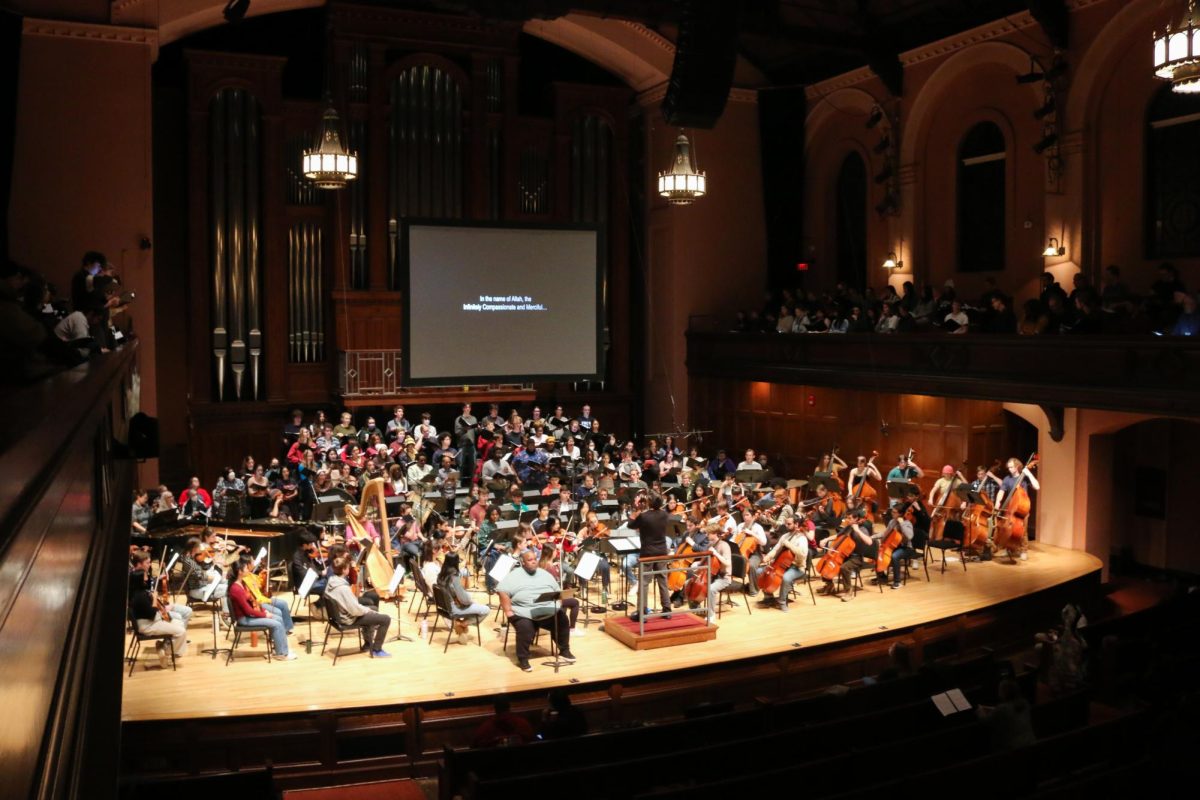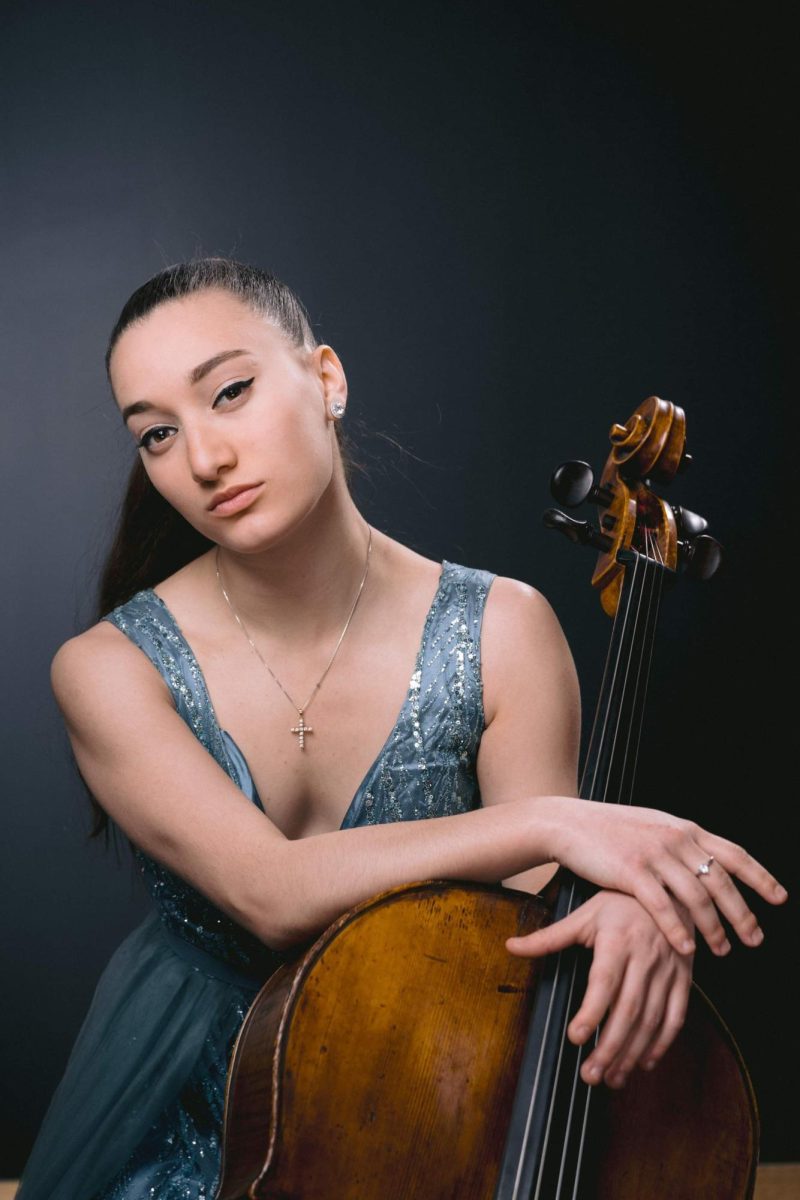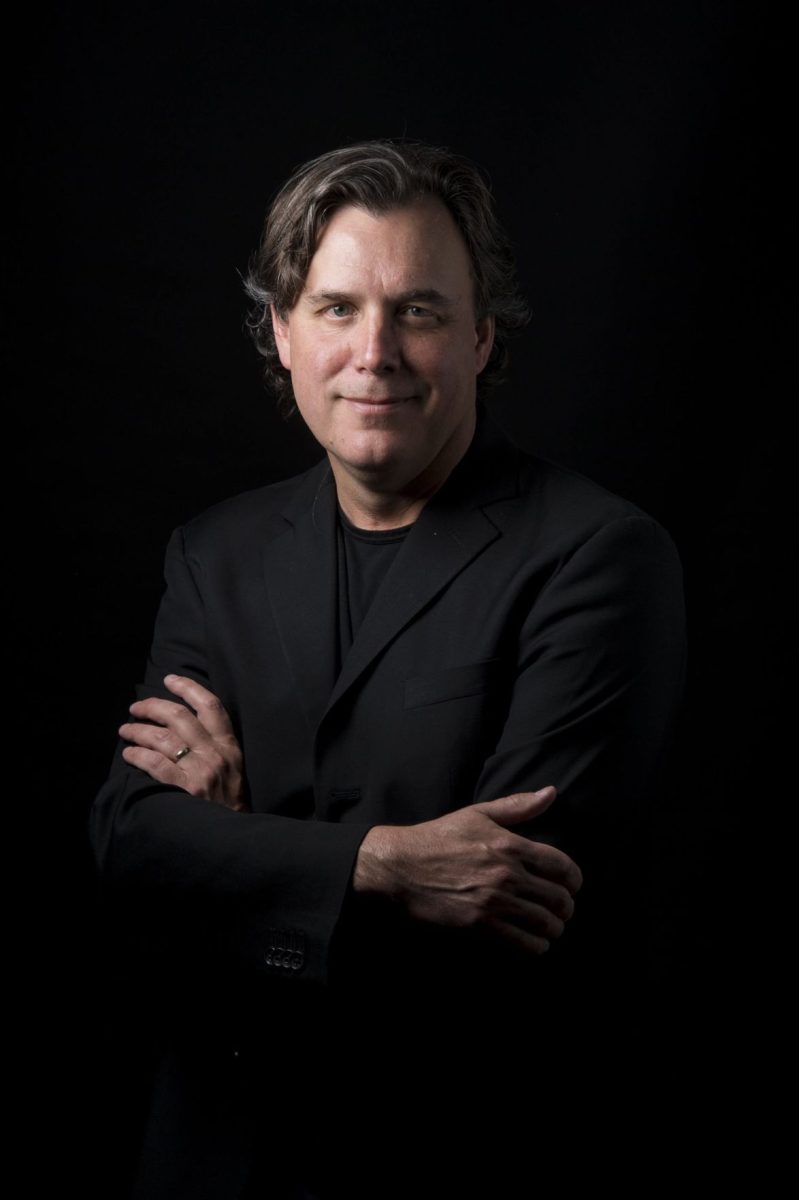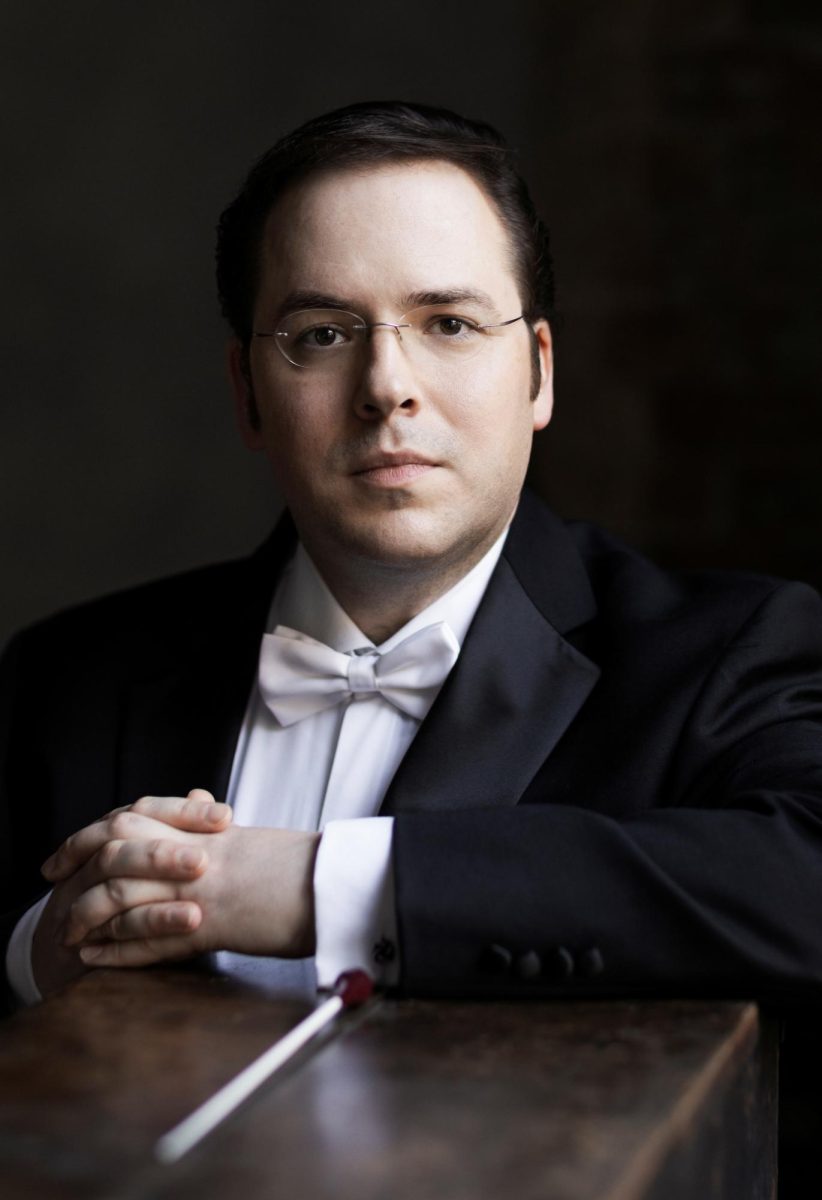David Byrd-Marrow has distinguished himself as a classical horn player, performing with the International Contemporary Ensemble, The Knights, Carnegie Hall’s Ensemble Connect, the New York Philharmonic, and the Cleveland Orchestra, among many others, and his experience extends to the genres of Broadway and jazz. He received his B.M. from The Juilliard School and M.M. from Stony Brook University. As of this fall, he is serving as the Associate Professor of Horn at the Conservatory.
This interview has been edited for length and clarity.
What brought you to classical horn, specifically contemporary music?
My father’s a horn player, so I was brought up in a semi-musical family. He was my first band director in elementary school. I started playing the trumpet, and I wanted to be Wynton Marsalis. In second grade I said, “I want to go to The Juilliard School.” I went on my first international music tour with the Atlanta Boy Choir when I was 10. What really sealed the deal was this interaction with cultures that were totally different through music. You could play with people or for people whose life perspective was totally different from yours, and everybody could have a good time. I am really attracted to that power of immersion.
At the end of middle school, my horn-playing father convinced me that I was good at horn. The first few years of high school, I played horn classically and played trumpet in jazz band.
I did my bachelor’s at Juilliard. I studied with Jerome Ashby, who I think was the second Black member of the New York Philharmonic, and with William Purvis, who’s a member of the New York Woodwind Quintet and one of my primary influences in new music. He was largely seen in the ’80s as a new music horn player, and he communicated that to his students. Also, by virtue of being in New York City, you get to be a part of a lot of music-making circles. During grad school, I was friends with a horn player and composer, Matt Marks. He died very young, but he was central in broadening my horizons. Every conversation was a new, “Oh, go check this out.”
After graduating, I had a church gig with clarinetist Joshua Rubin, OC ’85, and he was part of the International Contemporary Ensemble started by Obies. Three months later, their horn player bailed last-minute. That opened the door. I officially became a member in 2008.
I think the perception that I am this “new music horn player” is because there are less new music horn players. There’s not a lot of contemporary music happening. Within that there’s not a ton of horn. When horn players come in, it’s like, “What do you want to do?” “Play in an orchestra.” It makes sense. Even I was like, “I’m going to be first horn in the Super World Orchestra,” and I would say I’m the furthest thing from that.
What’s your experience with musical theater?
I didn’t set out in the beginning to become any type of music specialist, which was one of the brilliant things about living in New York — I didn’t have to. Orchestras, Broadway, new music, chamber music — I’ve done a lot of things at a high level. We’re having this Music Theater program coming in soon — I’m your man.
I had a terrible job at a shoe store, and that motivated me to email two horn players who had shows saying, “Hey, I’m practicing.” Broadway players are only required to do 50 percent of the shows, so they have to find substitutes. One of them wrote back, “Yeah, come in and watch.” The show’s been running, so you don’t get rehearsals. Your first show people pay to see, so your ability to read and assimilate to what’s going on stylistically is really important.
The good news is, I knew the style really well. When I was young, I would visit my grandma, and she was always playing The King and I. Flash cut to 20 years later — I’m playing The King and I on Broadway. I did The Wiz with Alex Lacamoire, and the third performance, Michael Jackson died, so Lacamoire, day of, gets permission from the estate to write a Jackson medley for exit music.
I also did the Encores revival of Sunday in the Park with George, and the show starts with a super high horn solo. Michael Sterman, the orchestrator, was young and ambitious and he wrote this ridiculous horn part. The original horn player, instead of saying, “This is crazy. I can’t do it,” got the show to buy him a descant horn, which makes it easier to play higher; to give him the in-house contractor position, which has a pay raise; and then to put him on stage in costume, which is two more pay raises. But for me, I didn’t get the music far in advance, so I had no idea what was going on. It was a crazy solo, but it went really well. Sondheim was there. He was a magnificent presence.
How do you navigate the predominantly white classical music sphere as a person of color?
First of all, I play horn, which is like the whitest instrument in the whitest music, but from the beginning, I saw my dad doing it in jazz, so I knew there’s a place for it. But if you’re going to learn, you have to take the traditional pathways.
For me, music, especially classical music, has always been some version of LARPing [Live Action RolePlay]. I play Beethoven — I love Beethoven — but I’m not looking for belonging in Beethoven. Music’s fun and I’m good at it. I play with great musicians and have a good time, but I have family, I have friends. I grew up in an all-Black neighborhood, went to an all-white elementary school, and when I practiced, my friends said, “What are you doing? It’s weird.” Music’s never been a place where I need to find my people.
Maybe that’s by virtue of when I was learning. I’d go to the symphony in Atlanta and there was one Black trombone player. I’d notice, but that was the situation. I was never looking for people like myself in an orchestra. That’s just generations of exclusion. Now we see it biting the industry in the ass. If classical music dies, it’s going to be because it did it to itself — because the ever-growing population of minorities in this country were not included, and now, as a whole, we’re not interested.


